Although thousands of Artificial Intelligence (AI) tools are available on the internet for scientific researchers, only a few are truly useful. This blog post highlights only the genuine tools essential for scientific research. These AI tools can significantly save researchers time.
All the AI tools listed in this blog post have been used and tested by us. However, selecting the perfect AI tool depends on the researcher’s objectives.
Since I come from a research background, I believe these AI tools are sufficient for use. If you think any good tool is missing, please comment below with its name. We will review it and update the list accordingly.
Best tools, websites for PhD students/ researchers/ graduates
Free and Paid plagiarism checkers for research papers/ thesis
1) AI Tools Used for Scientific Content Generation
1.a) Perplexity

Perplexity AI, based on Natural Language Processing (NLP), is a conversational search engine. This search engine uses a Large Language Model (LLM) to provide accurate information regarding user queries.
Uses
- It can be used to identify existing gaps in research.
- The tool can be used to clarify complex concepts through conversations.
A basic free version is available, while the professional version of this search engine costs $20 per month.
1.b) Gemini
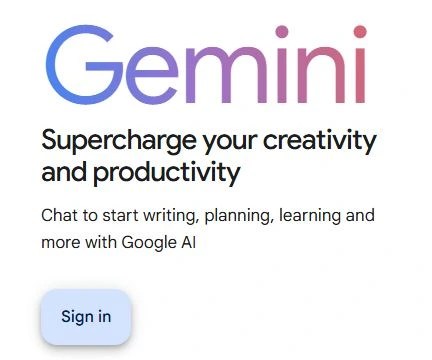
Gemini is a powerful and versatile AI model provided by Google.
Researchers can use Gemini in their scientific research for data analysis, interpretation, and research hypothesis generation or refinement.
1.c) ChatGpt

ChatGPT is also a strong AI model developed by OpenAI.
Uses:
- It can assist in writing research papers, theses, research proposals, etc.
- It can also answer various queries and help generate research ideas.
Comparative Summary of Perplexity, Gemini, and ChatGPT
| Features | Perplexity | Gemini | ChatGPT |
|---|---|---|---|
| Content-Type | Text-based & visual | Text-based & visual | Text-based & visual |
| Developed by | Aravind Srinivas | OpenAI | |
| Primary Use Case | Quick information retrieval | Summarizing information | Creative writing & complex tasks |
| Strengths | Up-to-date information, Direct citations for its information | Bulk Content generation | Bulk content generation, Data Analysis |
2. Consensus
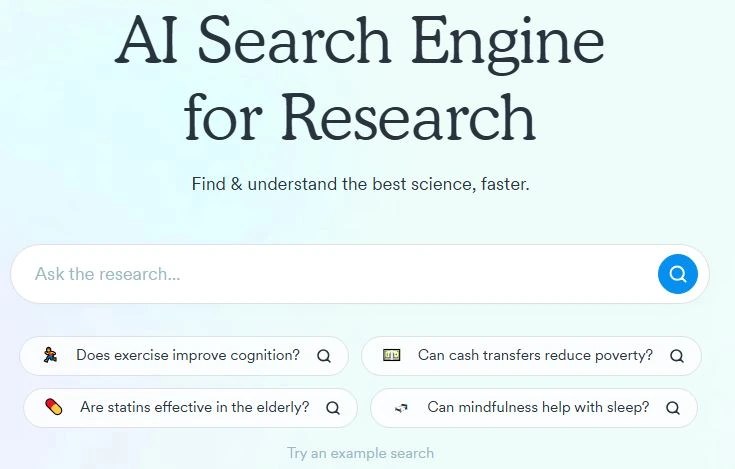
Consensus is a scientific search engine specifically designed for researchers. The search results are directly retrieved from research papers, along with citations, which helps researchers understand concepts more easily.d the concepts easily.
Uses:
- Easier review of literature
- Organized results for a search query
- Citation management
Both free and paid versions of Consensus are available.
3. ExplainPaper
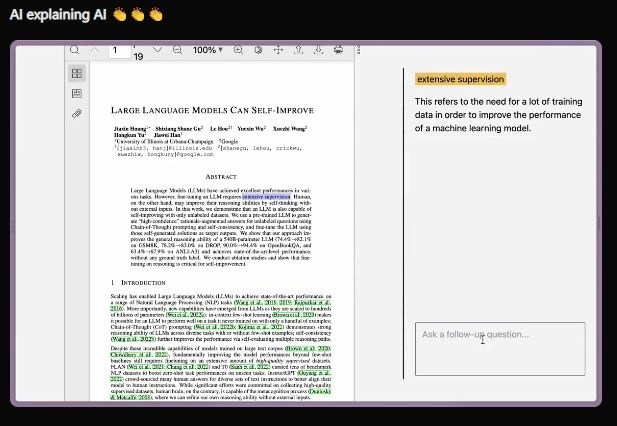
Explainpaper assists researchers in understanding complex concepts of research papers. This AI tool allows researchers to upload a research paper, highlight complex parts, and get an easy explanation in plain language.
Moreover, researchers get more clarifications on particular parts of the paper by asking questions.
Both free and premium versions of the ExplainPaper AI tool are available.
4. Grammarly
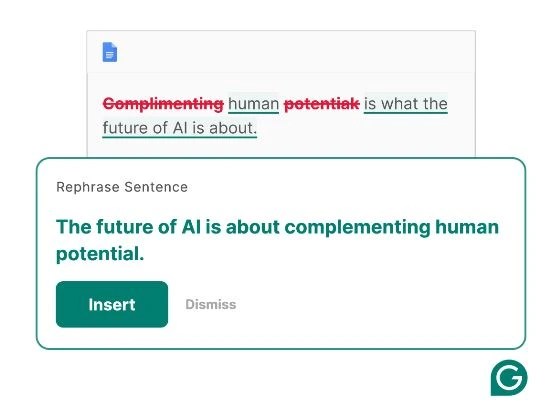
Grammarly is an AI-based writing assistant. The primary use of Grammarly is to assist users in writing by identifying and correcting grammatical, spelling, punctuation, and other language-related errors;
Uses:
- Proofreading and Grammar Checking
- It Improves readability
- Plagiarism Detection
5. Scite
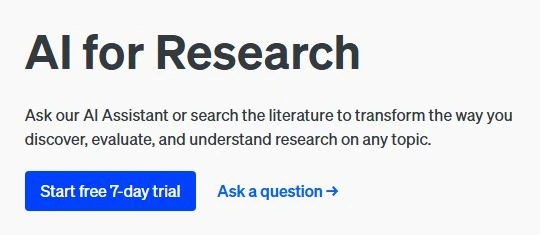
Scite.AI is an advanced AI research tool that helps users discover and analyze the literature effectively. This AI tool allows users to search research papers by title, authors, journals, specific research topics, or DOI.
Further, this tool saves a lot of time in literature review. It can generate a summary of a research paper, and highlight key findings of a research paper.
Uses
- Citation Analysis
- Literature Review
- Similar Paper Recommendations
- Identification of Research Gaps
The main disadvantage of this tool is that users need to register with payment details before accessing it.
6. ChatPDF

ChatPDF helps researchers interact with PDF documents by providing real-time question-and-answer capabilities. This tool uses Natural Language Processing (NLP) to understand user queries and PDF documents.
It allows users to upload PDFs and understand the content more easily. I particularly use this tool to understand research papers.
There are free and paid plans. ChatPDF lets a researcher analyze only two documents with a free plan.
Uses
- Quick Literature Review
- Simplifying Complex Papers
- Data Extraction
7. AI tools for PPT maker
I found these AI PPT maker tools useful when I needed to create presentations quickly. However, they are not ideal for making professional presentations that require precise information, such as thesis/synopsis presentations or FDP presentations. How do I use AI while creating professional presentations? I use content generator tools like ChatGPT, Gemini, etc., to generate content based on my PPT title. I then manually analyze the content and use it to create slides on my computer.
7. a) SlidesGPT
SlidesGPT is used to make AI-generated PowerPoint presentations within seconds.
I tested many AI PPT Maker tools, and SlidesGPT attracted me the most. The interface of this tool is very simple and clean.
A User must enter the presentation title and click on “create slides”. In response, the tool will generate and preview the presentation’s content. The user can then view, edit, and add more content.
Then the SlidesGPT will generate slides based on the content.
The main disadvantage of this tool is that users have to pay to download the PPT (2.99$ per PPT or select monthly plan).
7.b) Gamma
Gamma is another effective AI tool that can make Presentations in one click.
The free version of this tool is available. In this free version, users can make 10 slides and can download the PPT / PDF with a watermark (made by Gamma).
Summary
| S. No. | Use Case | AI Tools |
|---|---|---|
| 1. | Content Generation | ChatGPT Gemini |
| 2. | Data Analysis | ChatGPT ChatPDF |
| 3. | Literature Review | Consensus Scite Semantic Scholar |
| 4. | Summarization of Research Papers | ChatGPT ChatPDF Consensus Scite ExplainPaper |
| 5. | Scientific Writing Assistance | Grammarly ChatGPT |
| 6. | Question Answering on Research Topics | ChatGPT Perplexity Consensus ChatPDF |
| 7. | AI PPT Maker | SlidesGPT Gamma |
While these AI tools are powerful and helpful, however, they can provide incorrect or incomplete answers.
